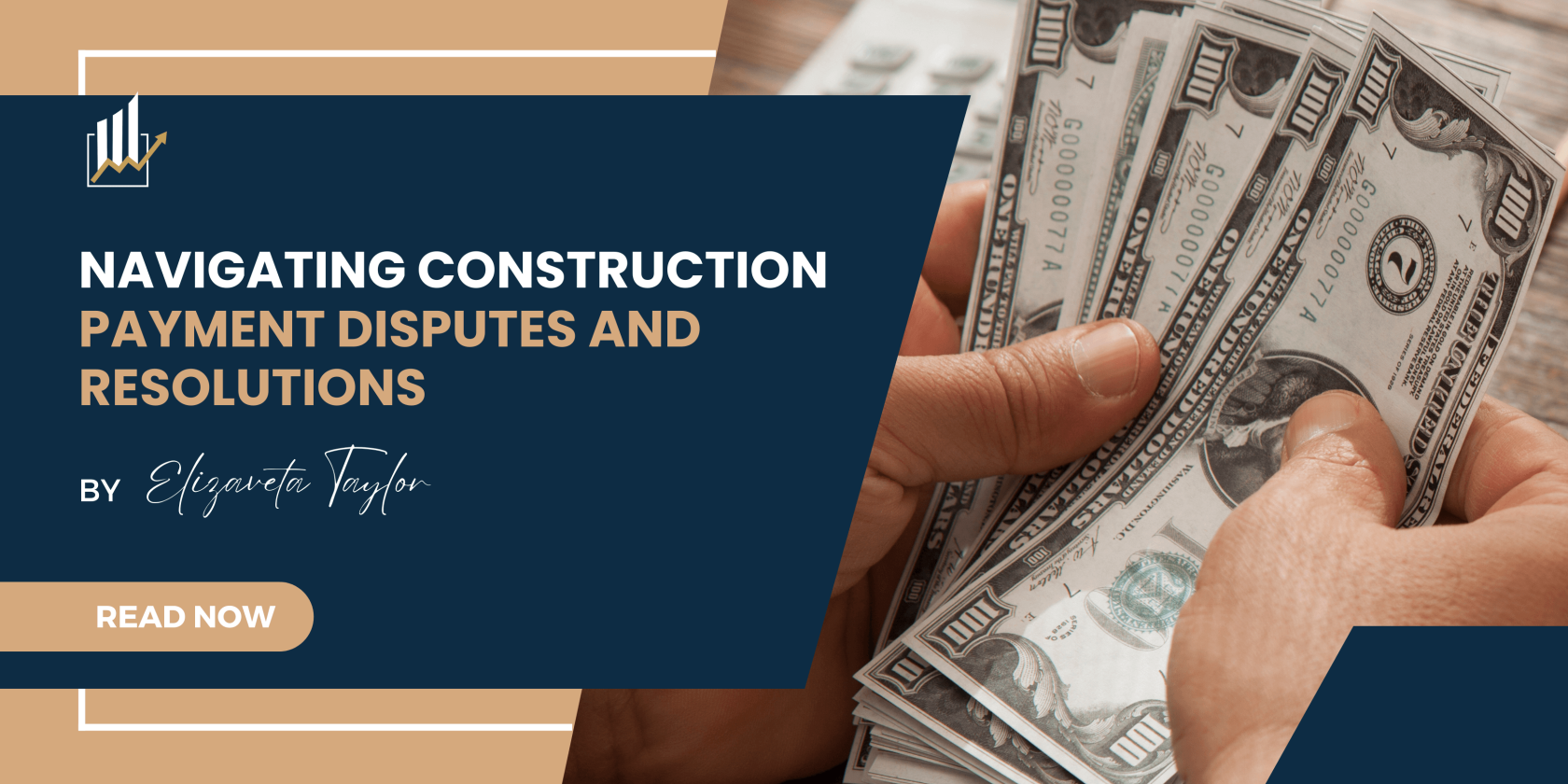
Navigating Construction Payment Disputes and Resolutions
As a remote bookkeeper with extensive experience in the construction industry, clients often ask me how to tackle one of the most common issues that plague construction business owners – payment disputes.
Think of payment disputes like termites that invade a brand-new building! Unresolved payment conflicts can shake the very foundation of your construction business. And nobody likes that.
Understanding Payment Disputes in the Construction Industry
To deal with a problem, you first need to understand it.
So, what’s a payment dispute? Simply put, it’s when disagreements arise over payment amounts, timing, or even scope of work among clients, subcontractors, or vendors. It’s an unfortunate reality of the construction industry that could stall project progress, disrupt cash flow, and potentially damage business relationships.
The Art of Avoiding Disputes – a two-step process
1. Clear and Robust Contracts
The first step to avoid payment disputes is ensuring a clear and robust contract.
Before work begins, clarify all terms and conditions, including the scope of work, payment schedule, and procedure for changes or unexpected occurrences. The contract should serve as the blueprint to your business deal – it should leave no room for ambiguities.
AKA – it has to be solid & bullet-proof, so to speak. Make sure you connect with your legal adviser or a lawyer who specializes in contracts for construction business owners like yourself.
💡Your contracts won’t be the same for each project; so I highly recommend getting each contract reviewed before getting everyone to sign on the dotted line!
2. Prompt Communication
Prompt and open communication is another vital strategy to prevent misunderstandings.
If changes occur that could affect the contract’s terms, like cost overruns or project delays, communicate these to all parties involved immediately. Take it from me: it’s much easier to negotiate adjustments when all parties are kept in the loop.
Solving Payment Disputes
Unfortunately, even with meticulous contracts and communication, disputes can still arise.
Here’s how to navigate these challenges 👇
1. Negotiation
First, attempt to resolve the dispute through negotiation.
This is often the quickest and most cost-effective method. Both parties present their sides and work towards a mutually beneficial solution. Keeping an open mind and focusing on the problem, not the person, can make this process smoother.
2. Mediation
If negotiation fails, consider mediation.
In this process, a neutral third-party mediator facilitates dialogue and helps both parties reach a resolution. They don’t make decisions but guide the conversation to help you find common ground.
3. Arbitration
In situations where negotiations or mediation don’t work, arbitration can be a good alternative. An arbitrator, much like a judge, hears both sides and then makes a binding decision. While more formal than mediation, arbitration is typically faster and less expensive than litigation.
Protecting Your Business Through Alternative Dispute Resolution
While traditional litigation is sometimes inevitable, alternative dispute resolution (ADR) methods such as mediation and arbitration are increasingly popular. They’re often faster, less expensive, and can help preserve business relationships.
As a business owner, including an ADR clause in your contracts could save you a lot of hassle. These clauses stipulate that disputes will first attempt to be resolved via negotiation, mediation, or arbitration before heading to court.
Keeping Your Cash Flow Healthy
Payment disputes can block your cash flow, which can feel like someone put a big “Stop” sign on your business’s road to success.
Here’s the good news: By integrating systematic and proactive bookkeeping strategies, you can help buffer your business from cash flow issues. Regular financial reviews, effective invoicing, and timely follow-ups can keep the cash flow engine running smoothly, even when faced with payment disputes.
In conclusion…
Disputes, while distressing, are not the end of the road!
They’re more likely bumps along the business journey. Navigating them successfully requires patience, good negotiation skills, and a sound understanding of dispute resolution methods.
As a construction business owner, it’s worth investing time to develop these strategies – they’re the tools that will help keep your business sturdy, regardless of the storms it faces.
Remember, you’re not just constructing buildings; you’re building a business that can withstand challenges and stand the test of time. By proactively handling payment disputes, you’re laying another brick in the foundation of your business’s success.
If you’re looking for some support when it comes to keeping your cash flow healthy, especially when construction payment disputes happen → book a call with me, completely for free! The link is down below 👇




